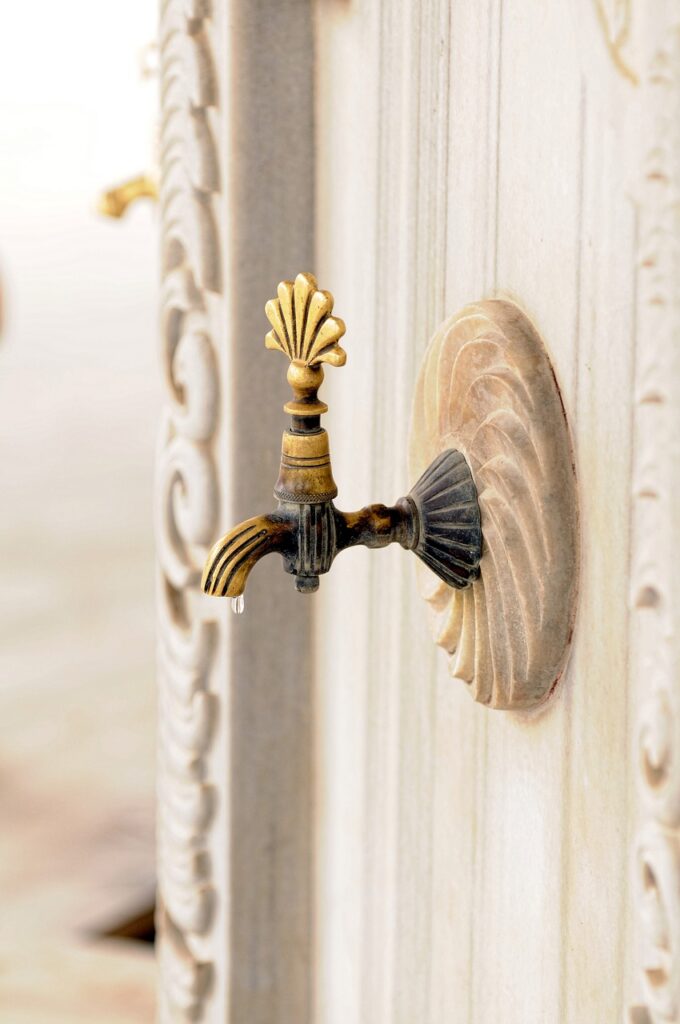Mastering Wudu: Essential Tips to Avoid Common Mistakes in Islamic Ablutions

Wudu, or ritual ablutions in Islam, is a crucial act of physical and spiritual purification. It’s a vital preparatory step for prayer, allowing believers to present themselves before Allah in a state of purity. Despite its fundamental nature, the process of Wudu is sometimes misunderstood or incorrectly performed, even by devoted practitioners. This article outlines common mistakes made during Wudu and provides practical advice to avoid them, ensuring a correct and spiritually enriching practice.
Mistake 1: Neglecting Intention (Niyyah)
Intention, or Niyyah, is the cornerstone of Wudu. It transforms a physical act into an act of worship and submission to Allah. A frequent mistake is to begin Wudu mechanically, without conscious intention. Before starting, it’s crucial to refocus, set the intention to perform Wudu for prayer, and remember Allah’s presence.
Mistake 2: Incorrect Order of Steps
Wudu follows a specific order established by the Sunnah. Failing to respect this order can invalidate the ablutions. It’s important to start by washing the face, then the arms up to the elbows, passing the wet hand over the head, and finally washing the feet up to the ankles. Each step has its significance and importance, and adhering to them is essential.
Mistake 3: Forgetting Certain Body Parts
It’s vital to wash all the specified body parts in Wudu. Missing areas like between the fingers, ears, or neck can render Wudu incomplete. A useful practice is to follow a systematic ritual to ensure all parts are properly washed.
Mistake 4: Excessive Use of Water
Excess in water usage goes against the teachings of moderation in Islam. Prophet Muhammad (peace and blessings be upon him) practiced Wudu using a minimal amount of water. Following this example not only respects Islamic principles but also encourages water conservation, a precious resource.
Mistake 5: Distraction During Wudu
Distraction during Wudu can diminish its spiritual value. It’s recommended to perform ablutions in a calm and respectful environment, avoiding conversations and external thoughts. Focusing on the act and its meanings can transform Wudu into a meditation and preparation for prayer.
Mistake 6: Omitting Prayers during Wudu
While specific invocations during Wudu are not mandatory, they enrich the experience. Reciting prayers or invocations at each step can increase spiritual awareness and strengthen the connection with Allah.
Mistake 7: Not Renewing Wudu Correctly
Wudu must be renewed after certain actions that nullify it, like using the toilet, deep sleep, or intense anger. Knowing these nullifiers and renewing Wudu accordingly is crucial for maintaining ritual purity.
Deepening: Understanding and Practicing Wudu
Beyond the physical aspects, Wudu has a profound dimension of inner purification. Reflecting on the spiritual meanings of ablutions, considering them as an opportunity to wash away minor sins and get closer to Allah, enriches the act of Wudu, turning it into a deep spiritual experience.
Wudu in Different Situations
It’s also important to know how to perform Wudu in different situations, like when traveling or when access to water is limited. Tayammum, dry ablution with dust, is an alternative when water is not available or cannot be used for health reasons. Knowing these rules ensures that purity obligations are respected in all circumstances.
Conclusion
Wudu is a fundamental act in the practice of Islam, symbolizing purity and preparation for prayer. By avoiding these common mistakes, Muslims can ensure their ablutions are not only correct but also imbued with spirituality and consciousness. As with all aspects of Islam, learning, sincere intention, and regular practice are essential to master Wudu. May this article serve as a guide to enrich your understanding and practice of Wudu, leading you towards more conscious and devoted worship.
To Know More: Learn Islam & Islamic History
Book your free trial lesson
Don’t want to go through the translation anymore?
30 free minutes with your qualified Egyptian teacher.
Chosen and Trusted by Thousands of Satisfied Learners
Discover the experiences of our delighted clients who have thoroughly enjoyed utilizing this standout feature.
Alhamdulillah I‘m very pleased with the arabic and Qur’an lessons I receive from teacher Umm Tasneem and I‘m also content with the al-dirassa administration team who were very quick in answering any questions I had. In a month I progressed a lot and I cannot wait to continue my studies with al-dirassa. May Allah reward everyone at al-dirassa.
 Verified review - view original
Verified review - view original
My Qur’an teacher is fantastic, she teaches me in a loving and kind way where I look forward to the lessons and learn so much. My Arabic teacher is equally as nice and has a lot of patience with me, she has great expertise in the field and I’ve progressed really quickly with her. Thank you Al-dirassa!
 Verified review - view original
Verified review - view original




